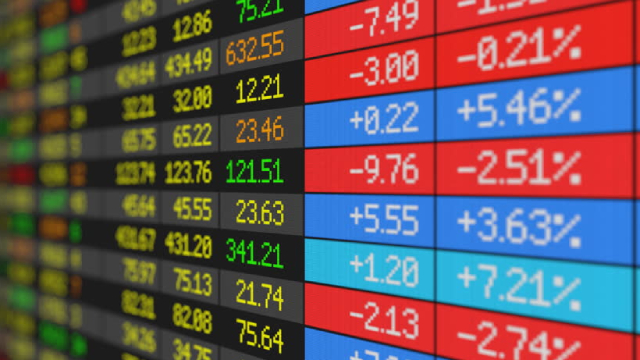Riding the Waves of Tariff Volatility: A Personal and Global Perspective
The financial markets have been a rollercoaster ride lately, with tariffs taking center stage. While the consensus among experts is to stay the course with long-term portfolio goals, it’s essential not to overlook the impact of short-term fluctuations. In this blog post, we’ll explore how tariff volatility affects us personally and the world at large.
Tariff Volatility: A Personal Perspective
As individual investors, we may feel anxious when we see the stock market taking a dip due to tariff-related news. It’s natural to wonder how this will impact our retirement savings or our children’s college funds. However, it’s crucial to remember that short-term market volatility is a normal part of investing.
One way to manage the emotional rollercoaster of market fluctuations is to focus on our long-term investment goals. This means having a diversified portfolio and a well-thought-out investment strategy. Diversification helps spread risk across various asset classes, reducing the impact of any single event, such as tariff-related volatility, on our portfolio.
Tariff Volatility: A Global Perspective
On a global scale, tariff volatility can have far-reaching consequences. Trade disputes between major economies can disrupt global supply chains, leading to higher prices for consumers and businesses. For example, tariffs on imported goods can increase the cost of production for companies, which may lead to higher prices for consumers.
Moreover, tariffs can impact international trade relationships. For instance, the ongoing trade dispute between the United States and China has led to retaliatory tariffs, which could potentially harm economic growth in both countries and beyond. The World Trade Organization (WTO) has estimated that the tariffs could reduce global trade growth by up to 1.2% in 2019.
Impact on Individuals: Coping Strategies
- Stay informed: Keep up-to-date with market news and economic developments that could impact your investments.
- Diversify: Spread your investments across various asset classes to reduce risk.
- Rebalance: Regularly review your portfolio and rebalance as needed to maintain your desired asset allocation.
- Stay calm: Market volatility is normal, and panicking can lead to poor investment decisions.
Impact on the World: Mitigating Strategies
- Negotiate: Governments and businesses can work together to negotiate trade agreements that benefit all parties involved.
- Innovate: Companies can explore alternative supply chains and production methods to reduce their dependence on imported goods.
- Adapt: Countries can adjust their economies to focus on sectors that are less dependent on international trade.
- Communicate: Clear and open communication between governments and businesses can help reduce uncertainty and potential conflicts.
In conclusion, while tariff volatility can cause short-term market fluctuations, it’s essential not to lose sight of our long-term investment goals. As individuals, we can manage our emotions and focus on our investment strategies. At a global level, countries and businesses can work together to find solutions that benefit all parties involved. Remember, market volatility is a normal part of investing, and with the right strategies, we can ride the waves and come out stronger on the other side.
Call to Action
If you have any questions or need help with your investment strategy, don’t hesitate to reach out to a financial advisor. Together, we can navigate the ups and downs of the financial markets and work towards achieving your long-term investment goals.





